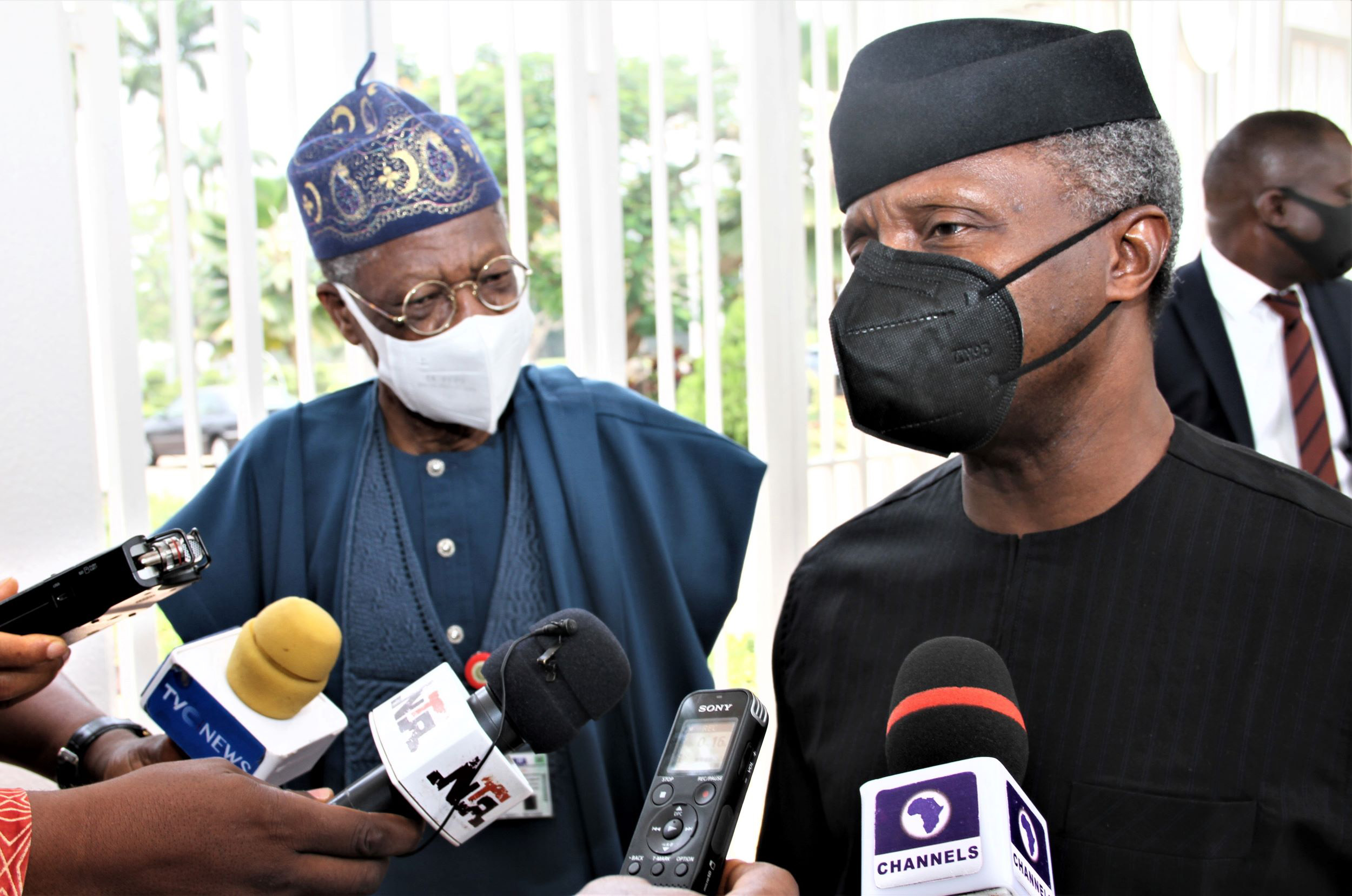Business
Prioritise Agric To Tame Inflation, Experts Urge FG

The Federal Government has been urged to prioritise agriculture in order to tame the country’s rising inflation occasioned by insecurity and hike in electricity tariffs.
Financial experts gave the advice in Lagos, yesterday while reacting to March inflation figure released by the National Bureau of Statistics (NBS), which increased by 18.17 per cent (year-on-year) in March.
The Chief Executive Officer, Sofunix Investment and Communications, Mr Sola Oni, said the rising inflation was not unconnected with the naira devaluation, which was due to external shocks in the international oil market.
“Government should tame inflation through diversification of the economy to optimise production and over dependence on income from crude oil.
“This can be possible by investing in agriculture and creating an enabling environment for the SMEs to thrive and create employment opportunities.
“There should be a deliberate policy of investing in infrastructure among others to ease means of doing business.
“Government should align fiscal and monetary policies to attract investment, encourage economic activities and boost the Gross Domestic Product,” Oni said.
President, Association of Capital Markets Academics of Nigeria, Prof. Uche Uwaeleke, said agriculture should be prioritised with emphasis on mechanised farming for increased output.
Uwaleke said the Central Bank of Nigeria (CBN) should scale up interventions in the agricultural value chain to boost production.
According to him, time has come to take the issue of state police more seriously to tackle insecurity in the country.
He said the Bank of Agriculture should be re-capitalised and partially privatised for it to be more effective.
“The bank was set up to finance agriculture but can’t perform partly due to weak capital base.
“Some of the interventions by the CBN should have been by the BOA if it was well capitalised.
“Private sector participation is required to make it more functional,” he said.
Uwaleke noted that food was the critical component exerting the greatest pressure on inflation.
“This may not be unconnected with insecurity in most parts of the country.
“Another thing to note is that inflationary pressure is more in the urban than in rural areas.
“This could be the consequence of poor transport infrastructure and logistics to convey goods from rural to urban areas resulting in high cost of transport made worse by high fuel price.
“The hike in electricity tariffs equally contributes to rising urban inflation,” Uwaleke said.
Speaking on the implications of the rising inflation, he said the 2021 budget target of 11.95 per cent appeared unrealistic.
“The CBN Governor had said the inflation rate would moderate by May this year.
“This is again unlikely in the face of downside risks from likely hike in pump price of fuel as well as depreciation of the naira,” Uwaleke added.
The NBS disclosed in its report on ‘Consumer Price Index’ for March 2021 that March inflation rate remained the highest in four years.
The consumer price index, which measures inflation increased by 18.17 per cent (year-on-year) in March.
This is 0.82 per cent points higher than the rate recorded in February (17.33 per cent).
The urban inflation rate increased by 18.76 per cent (year-on-year) in March from 17.92 per cent recorded in February 2021, while the rural inflation rate increased by 17.60 per cent in March from 16.77 per cent in February.
Business
Agency Gives Insight Into Its Inspection, Monitoring Operations

Business
BVN Enrolments Rise 6% To 67.8m In 2025 — NIBSS

The Nigeria Inter-Bank Settlement System (NIBSS) has said that Bank Verification Number (BVN) enrolments rose by 6.8 per cent year-on-year to 67.8 million as at December 2025, up from 63.5 million recorded in the corresponding period of 2024.
In a statement published on its website, NIBSS attributed the growth to stronger policy enforcement by the Central Bank of Nigeria (CBN) and the expansion of diaspora enrolment initiatives.
NIBSS noted that the expansion reinforces the BVN system’s central role in Nigeria’s financial inclusion drive and digital identity framework.
Another major driver, the statement said, was the rollout of the Non-Resident Bank Verification Number (NRBVN) initiative, which allows Nigerians in the diaspora to obtain a BVN remotely without physical presence in the country.
A five-year analysis by NIBSS showed consistent growth in BVN enrolments, rising from 51.9 million in 2021 to 56.0 million in 2022, 60.1 million in 2023, 63.5 million in 2024 and 67.8 million by December 2025. The steady increase reflects stronger compliance with biometric identity requirements and improved coverage of the national banking identity system.
However, NIBSS noted that BVN enrolments still lag the total number of active bank accounts, which exceeded 320 million as of March 2025.
The gap, it explained, is largely due to multiple bank accounts linked to single BVNs, as well as customers yet to complete enrolment, despite the progress recorded.
Business
AFAN Unveils Plans To Boost Food Production In 2026
-

 Politics4 days ago
Politics4 days agoEFCC Alleges Blackmail Plot By Opposition Politicians
-
Business4 days ago
AFAN Unveils Plans To Boost Food Production In 2026
-

 Sports4 days ago
Sports4 days agoJ And T Dynasty Set To Move Players To Europe
-
Business4 days ago
Industrialism, Agriculture To End Food Imports, ex-AfDB Adviser Tells FG
-
Politics4 days ago
Datti Baba-Ahmed Reaffirms Loyalty To LP, Forecloses Joining ADC
-
Politics4 days ago
Bayelsa APC Endorses Tinubu For Second Term
-
Business4 days ago
Cashew Industry Can Generate $10bn Annually- Association
-

 Entertainment4 days ago
Entertainment4 days agoAdekunle Gold, Simi Welcome Twin Babies

